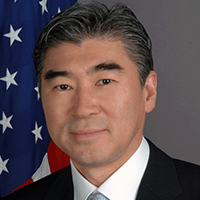

Lying within the global center of marine biodiversity, the Philippines is one of the world's top fish producing countries, and millions of Filipinos derive their livelihood from fishing. However, these rich and precious resources are declining rapidly, with research showing that 10 of the country's 13 major fishing grounds are already under threat due to overfishing, destructive fishing practices, habitat degradation, pollution, improper waste disposal, and extreme weather.
It is estimated that the Philippines loses nearly P68.5 billion a year to illegal, unreported, and unregulated fishing, a trend that affects the country's economic development through lost revenue and unrealized opportunities for local fishermen and associated seafood industries. With fish making up the major protein source in the Filipino diet, this decline in fish stocks also has implications for the country's food security, particularly for the nearly 52% of fisherfolk who already live beneath the poverty line. Illegal fishing practices also put law-abiding fishers and seafood producers at a disadvantage in both the domestic and global marketplace.
As we observe the International Day for the Fight against Illegal, Unreported, and Unregulated Fishing on June 5, I'd like to thank our Philippine partners for working with us to address the threats posed by illegal fishing and to protect our marine resources for future generations. For over 3 decades, the US government has worked closely with the Philippine government and local partners to achieve our shared goal of sustainable fisheries and healthy marine ecosystems. For example, the US Agency for International Development's (USAID) 5-year EcoFish Project worked with the Bureau of Fisheries and Aquatic Resources (BFAR) and local governments to increase the number and weight of fish by 24% in focus sites. USAID's new P1.3-billion, 5-year Fish Right project, launched in 2018, works with BFAR, DENR, and a consortium of local partners to address biodiversity threats and increase fish biomass in select marine biodiversity areas in the Philippines. Building on the gains of previous USAID-supported coastal, marine, and biodiversity conservation projects that introduced an ecosystem approach to fisheries management, the Fish Right partnership promotes the sustainable use of critical coastal and marine resources, enhances the resilience of these resources, and improves the ability of Philippine authorities to sustainably manage fisheries – for the benefit of all Filipinos.
The Department of Environment and Natural Resources (DENR) has partnered with other US agencies, such as the National Oceanic and Atmospheric Administration (NOAA), to develop and implement capacity-building programs for managers of Marine Protected Areas (MPAs). This effort will continue to train new MPA managers to more effectively address threats to Philippine marine resources.
Recognizing the important role law enforcement plays in combating illegal fishing and protecting marine resources, Philippine law enforcement officers have collaborated with US experts to better utilize sophisticated satellite data to detect boats fishing illegally in Philippine waters and to prevent and deter illegal fishing. We have helped to train nearly 100 officers and inspectors from BFAR and the Philippine Coast Guard (PCG) on practical law enforcement techniques, such as how to board foreign fishing vessels, conduct comprehensive fisheries inspections, and draft briefings and affidavits for prosecutors.
This year, the US Coast Guard led a first-of-its-kind multinational fisheries law enforcement workshop in Manila that built capacity for at-sea enforcement operations in Southeast Asia. The workshop, which included participants from the Philippines, Vietnam, Malaysia, and Indonesia, strengthened domestic fishery enforcement in each country and helped to improve regional cooperation, coordination, and interoperability.
American scientists also seek opportunities to collaborate with Philippine counterparts on marine science research projects. These scientific endeavors do not just increase our joint understanding of oceanographic phenomena or marine species distribution, they help inform global and local evidence-based fisheries management policies and ensure that there will still be fish for Filipino generations to come.
Ensuring the health of Philippine fisheries – and the country's economy – will not just require robust law enforcement and improved science, it will also require innovative new ideas championed by young Filipinos. To that end, we have supported marine-focused education and empowerment camps for some of the country’s most inventive and motivated emerging leaders. We are proud to see the dynamic youth pioneer new social entrepreneurship models in their communities, establish green businesses that address marine challenges, and strive to educate those around them about the importance of healthy ocean ecosystems.
The US government is honored to work alongside Philippine government agencies, civil society, and inspiring young Filipinos to address these challenges. And we will continue to work together to advance human and ecological well-being in the Philippines and to support initiatives that ensure the continued health of Philippine fisheries. We truly believe that your fish is your future.– Rappler.com
Sung Kim is the United States' ambassador to the Philippines.